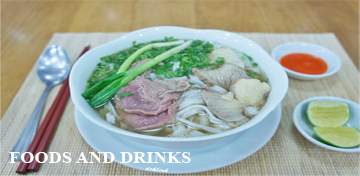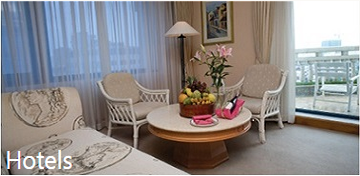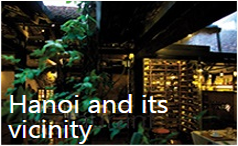History
After the success of the August Revolution, people of the capital and all over the country bravely participated in the struggles to protect the new revolutionary government, built forces to prepare for any situations. In October 1946, the French invaders opened fire to seize Hai Phong, then attacked Lang Son and put aggression in Hanoi.
After the success of the August Revolution, people of the capital and all over the country bravely participated in the struggles to protect the new revolutionary government, built forces to prepare for any situations. In October 1946, the French invaders opened fire to seize Hai Phong, then attacked Lang Son and put aggression in Hanoi.
In respond to the sacred calling of President Ho Chi Minh "It is better to sacrifice everything, but definitely not to lose the country and to be slavery", Hanoians simultaneously stood up to fight against the enemy and won active position in the war. In only one month (12/1946), the Protection Committee directed the interconnected zones, offices, factories, hospitals, research institutes to move precious dossiers and materials, machinery to the war zone; ensure safety for the intellectuals in the hinterland. Urban people evacuated to the suburban, leaving their homes and gardens empty. The self defence teams trenched, embanked and chipped the wall from house to house. It was such great jobs that without the unity from top to bottom, they could not be done. Each party branch in the joint areas was actually the nucleus that leaded people to prepare well for the war. The party branches also relied on the people to organize logistics teams, first aid teams, food storages, health centers for the fight.
Within nearly 9 years of fighting and with the tenacious and bravery spirits of our army and people, especially after our decisive battle at Dien Bien Phu (May 7th, 1954), the French was forced to seat in the negotiation and sign the Geneva Agreement (dated July 20th, 1954), which recognized the independence, sovereignty and territorial integrity of the three Indochinese countries including Vietnam, Laos and Cambodia; and accepted to withdraw its troops from North Vietnam. At this time, Hanoi was liberated completely.
To comply with the conditions of the Geneva agreement, French troops handed over Hanoi to our army and people 80 days since the agreement was signed.
However, before withdrawing, the French Army found many ways to destroy Hanoi with the aim of making our army and people having more difficulties at the take-over time: stealing documents and public property; destroyed machinery or took out the important parts. French colonialists tried to entice, coerce our citizens to migrant to the South; let henchmen cause mess in the city. The French military also destroyed the monuments and cultural history of our country.
Under the leadership of the Central Party and Hanoi Party Committee, the capital people have persistently fought against the destroying conspiracy and forced them to hand over the city on time. The Capital Liberation anniversary Day (October 10th was also called "take-over day" by Hanoi people. Because, at that time our army and people returned to take-over a peaceful capital. There were no gunshots, no fierce battles in streets like in the past in Hanoi.
Following the Resolution dated September 17th, 1954 of the Government Council, the Political Military Committee of Hanoi city was founded which the Major-General Vuong Thua Vu -the commander of The Pioneer Force was elected as a chairman and doctor Tran Duy Hung was the Vice Chairman. The Political Military Committee was responsible for receiving and controlling the city. The High Command ordered all of the units that took over Hanoi must absolutely comply with the policies and disciplines of the government, show great vigilance and be willing to defeat completely enemy's plots and attacks. The Pioneer Force was assigned to take over Hanoi by the Party Central Committee and the Government.
As planned, in the morning of October 8th, 1954, military units were divided into different teams to enter the outskirts of Hanoi from different entrances. By 16:30 they approached La Thanh, Vinh Tuy, Bach Mai, So Crossroad, O Cau Giay and Nhat Tan.
At 6 a.m of October 9th, 1954, the army forces from suburb entered into the city, then they separated into different ways to enter 5 main gates then spread and took over other places. At 4 p.m of October 9th,1954, the last colonialists withdrew through Long Bien bridge and our troops got total control of the city.
In the morning of October 10th, 1954, the City Political Military Committee and the People's Army units were divided into several large teams to start a historic march towards Hanoi. The units that took over the capital, led by the Capital Regiment, raised the flag of war decision and entered from the 5 gates to liberate Hanoi. In the flags and flowers forest, more than 15 thousand people in Hanoi were jubilant in victory and the day of October 10th became a great event of the Hanoians - Liberation Day of the Capital. The Liberation Day has marked a significant turning point, opened a new glorious history era in Thang Long – Hanoi – a –thousand-year-old culture.
Also on that day, Ho Chi Minh President called on Hanoians to build "Hanoi- a peaceful, joyful and prosperous capital".
2014 was a very significant year with Hanoi capital - 60 years of the Liberation Day(October 10th, 1954). In 60 years, Hanoi changed dramatically both in size, appearance and depth. Through 60 years of growth and development, from a city devastated by the wars, nowadays Hanoi becomes the national center of economy, politics, the capital of Heroes, City of peace. Hanoi is reaching the international arena in terms of cultural beauty and knowledge. The Party, authorities at all levels and people of the Capital implemented the admonition of Ho Chi Minh President on building and developing Hanoi as the leading locality in the country. With a long history of building and defending the country, Hanoi will always be preserved and developed, expanded to live up to its role as the political, economic and social center of the country.
Tran Thuy




